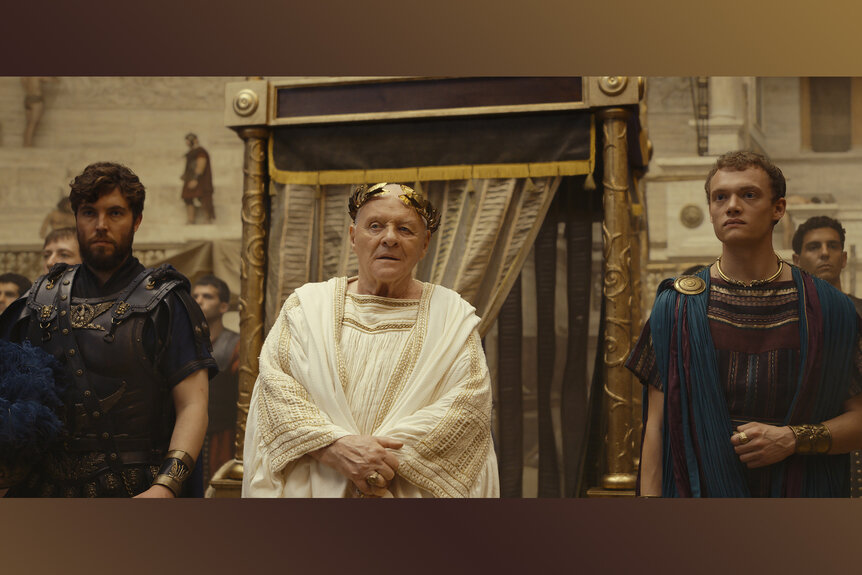Those About to Die: Did the Ancient Romans Invent the Olympic Games?
The answer may surprise you!
When you picture gladiators — like the ones featured in Peacock's Those About to Die — your mind may associate their bloody Colosseum clashes with what we now know as the modern Olympic Games. After all, the winning fighters in the days of ancient Rome were handsomely rewarded for their success, much in the same way today's athletes are given medals.
RELATED: Did Peacock's Epic Gladiator Series Those About to Die Really Film in Rome? Everything to Know
With the 2024 Summer Olympics about to kick off in Paris (all events will stream exclusively on NBC and Peacock), the big question is this: How often do you think about the Roman Empire? Sorry, we meant the other big question!
Did the Ancient Romans Invent the Olympics?
While ancient Romans enjoyed a great deal of power and influence over their vast empire, they were not responsible for coming up with the original Olympic feats of athletic fortitude. That particular distinction goes to the ancient Greeks, who invented the games around 3,000 years (give or take) ago as a religious way to honor Zeus.
In fact, the word "Olympics" is a derivation of Mount Olympus, the fabled home of Zeus and the rest of the pantheon of deities worshipped by the the Greeks of antiquity. The games, which took place every four years in the town of Olympia and beyond, were so important to this early society, that everything — even wars — took a backseat to their commencement.
"The Olympics, or Panhellenic Games — that were held not just in ancient Olympia, but in other sanctuaries throughout the Greek world — were extremely important to the formation of Greek culture and identity," Dr. Veronica Kalas, a Smithsonian expert on the ancient through Byzantine periods of Greece, tells NBC Insider. "Athletic competitions were in honor of the gods and a truce was made among city states in order for athletes to participate every four years."
Many of the physical gauntlets featured at the ancient games like running, javelin throwing, jumping, and boxing, remain unchanged to this day. When they first began, there was only one competition: a footrace (a cook named Coroebus won the first documented sprint). Victors received a crown made of olive leaves, as well as eternal bragging rights and notoriety.
The Olympic Games were officially banned by Roman Emperor Theodosius I in 393 AD over the concern that they encouraged pagan practices. By that time, Rome had become the nexus of Christianity. The contemporary iteration of the Olympics, in which athletes from all over the world compete for the gold, did not begin until the late 19th Century in Athens.
"The ancient and modern games have similarities only in that they were both held every four years, and the competitions in track and field are roughly similar to those of the ancient games," adds Dr. Kalas. "Other than that, they are completely different — not just in the number and variety of competitions held today, but that the venue changes every year and the religious aspect is gone."
When Does Those About to Die Premiere?
All 10, hour-long episodes of Roland Emmerich's Those About to Die —featuring the great Anthony Hopkins as Roman Emperor Vespasian — premiered on Peacock Thursday, July 18.
RELATED: Those About to Die: Everything to Know About the Cast & Characters in Peacock's Gladiator Series
The NBCUniversal platform currently offers two monthly subscription plans: Premium ($5.99 a month with ads) and Premium Plus ($11.99 a month with no ads and download access for certain titles). If you're a student, you can enjoy the Premium plan for just $1.99 for an entire year!
How to Watch the 2024 Paris Olympics
Every event of the Summer Games will stream live on Peacock. Opening Ceremony coverage begins July 26 at 12 p.m. ET on NBC and Peacock.



















